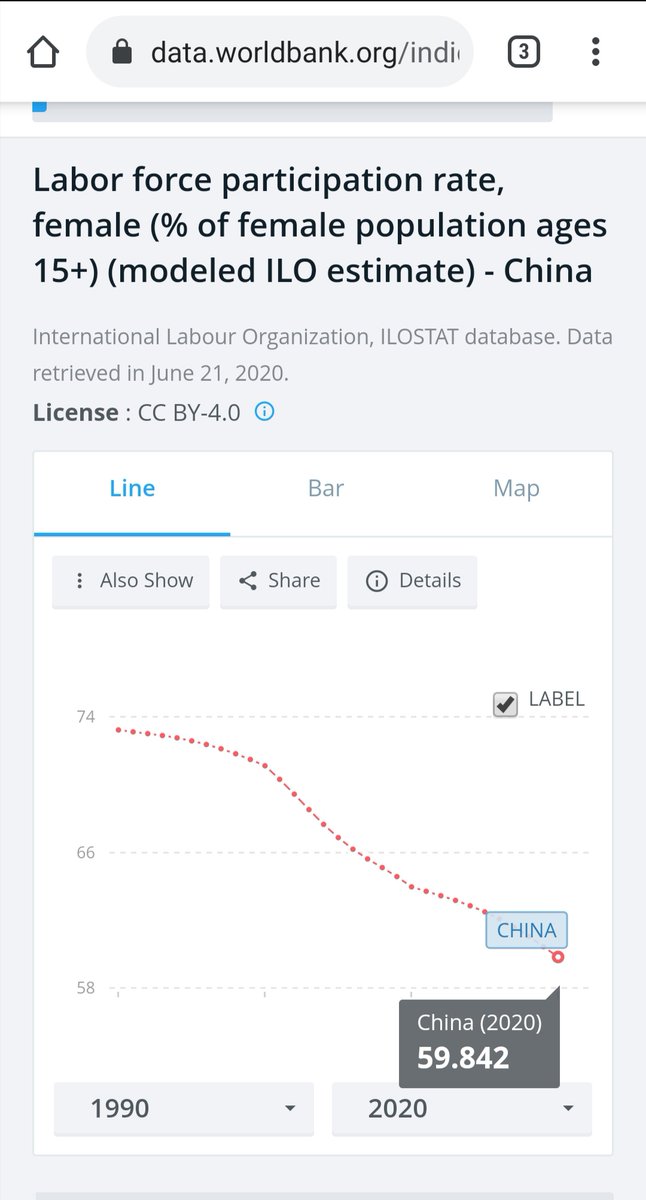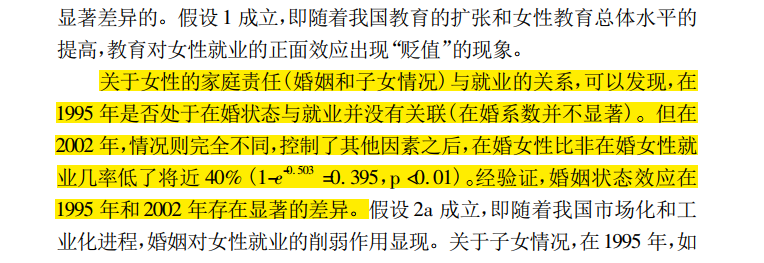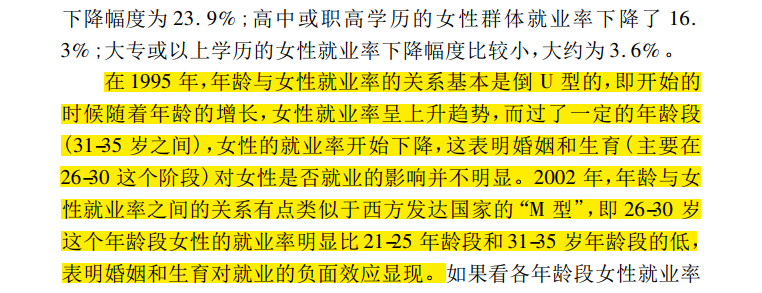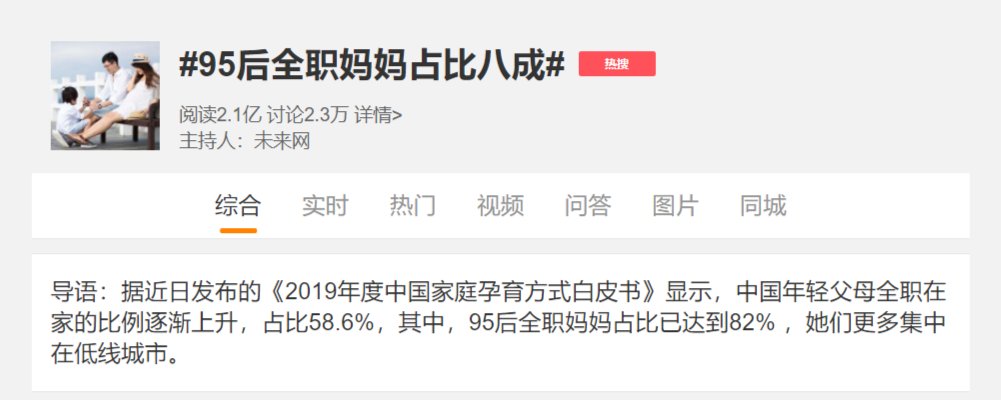the heated debates about housewives on weibo recently got me to look up this.
female labour force participation rate in China fell from around 74% in 1990 to around 60%. although still among the higher ones worldwide, the fall is quite dramatic.
female labour force participation rate in China fell from around 74% in 1990 to around 60%. although still among the higher ones worldwide, the fall is quite dramatic.
check out the analysis shared by @yige_dong and @linzhang9 in the thread https://twitter.com/yige_dong/status/1327770977212706817
on the flaws of the ILO data
https://twitter.com/yige_dong/status/1327773720157491202
I think this is a common problem with labour market data in Cn: either it's only about urban residents, or, it includes rural data but takes all rural residents (incl migrant workers) as employed (务农 as occupation)
https://twitter.com/yige_dong/status/1327773720157491202
I think this is a common problem with labour market data in Cn: either it's only about urban residents, or, it includes rural data but takes all rural residents (incl migrant workers) as employed (务农 as occupation)
Wu Yuxiao's 2010 paper in Chinese Journal of Sociology finds that "between 1995-2002, the positive effect of education on women's employment decreased, whereas the negative effects of marriage and family economic situation increased"
http://gb.oversea.cnki.net/KCMS/detail/detail.aspx?filename=SHEH201006007&dbcode=CJFD&dbname=CJFD2010
http://gb.oversea.cnki.net/KCMS/detail/detail.aspx?filename=SHEH201006007&dbcode=CJFD&dbname=CJFD2010
Marriage status wasn't correlated to women's employment in 1995, but became significantly correlated in 2002. As wage disparities widened, married women who "enjoyed high household incomes in 2002 were more likely not to participate in the labor market".
labor force participation rate among urban women decreased b/w 1995 and 2002 for all education groups. The decrease was largest for the middle school educated (28.3%). Primary school: decreased by 23.9%. High shool: decreased by 16.3%. Uni graduates: decreased by 3.6% (Wu 2000)
In 2019 BabyTree, the largest parenting website in China, published an annual report that became hugely topical. It finds that among young moms surveyed born after 1995 (under age 24), 82% are stay-at-home moms. The percentage of working mothers among moms surveyed
in higher tier cities is 46.8%, and only 35.4% in lower tier cities.
However, their sample is from their website and app users -people who're either parents or preparing to become parents. So a big selection bias there. It did make some waves in the media.
However, their sample is from their website and app users -people who're either parents or preparing to become parents. So a big selection bias there. It did make some waves in the media.
So to summarize. Marriage and childcare are big contributing factors. Socialized child care that was provided by danwei (but only available to urban women) under planned economy is much less available now. The costs of childcare are much higher. Income increased and disparities
widened. All this makes being a stay-at-home mother a rational choice for some women in good family economic situations. (ask Ueno Chizuko about capitalism and patriarchy)
Digital economy may have created more opportunities for informal income and entrepreneurship.
Digital economy may have created more opportunities for informal income and entrepreneurship.

 Read on Twitter
Read on Twitter





